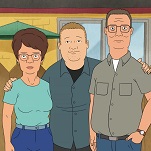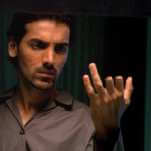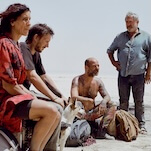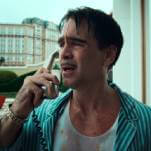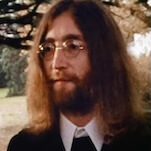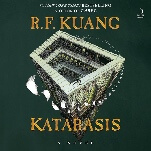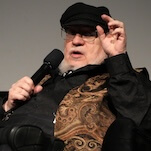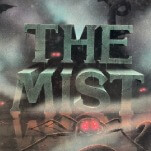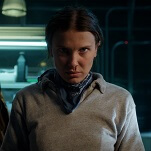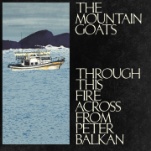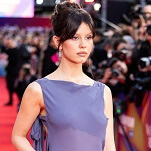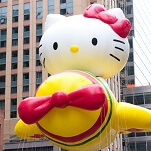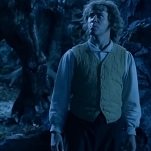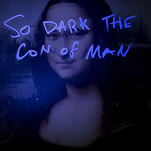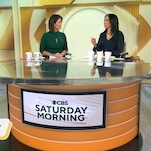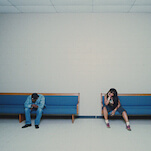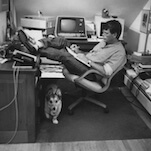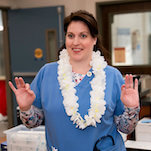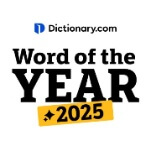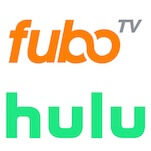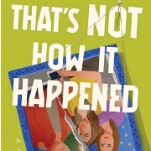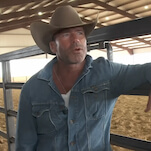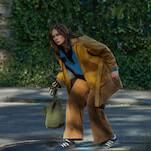Aristotle Athiras, Asif Ali, Fahim Anwar, and Hasan Minhaj have been making comedy together under the name Goatface since 2011, and with the recent release of its first Comedy Central special, the group is poised to reach a much wider audience with their hyper-specific, unapologetically brown brand of comedy. Like Key & Peele and Chappelle’s Show, Goatface harnesses culturally specific humor about race and identity that’s authentic, layered, and downright hilarious.
There are shades of Kroll Show in there, too, especially in Goatface’s reverence for and skewering of various television forms. Fake commercials abound, and a game show parody, the special’s finest sketch, utilizes several tropes of the genre. Goatface reminisces of Kroll Show in its weirdness, too. The Frosted Gregs sketch, a cereal commercial parody, has little point other than being extremely bizarre and slightly disturbing, but it works, especially because of Minhaj’s commitment to how over-the-top it is.
Given the expanded scope and budget of the Comedy Central special, Goatface has a lot more freedom to lean into their weirdness and flesh out their ideas with details, expanding beyond the comparatively stripped-down nature of their YouTube videos. The details in “Baba Knows Best” elevate it beyond just a joke about brown dads. Everything from what they’re wearing to the specific cadence of their voices and the things they say paint a very clear picture. It’s the perfect kind of cultural inside joke. Some viewers, myself included, will see specific people from their own lives that they recognize. Goatface sheds light on the first generation immigrant experience, particularly when it comes to Middle Eastern and South Asian identities, and unearths nuanced, sharp comedy.
The sketch’s pinpoint accuracy in its characterization of Mohammad, Akber, and Nassar and its commentary on the expectations that brown dads have of their children as well as their emotion withholding is specific and grounded. But it doesn’t take any real stretch of the imagination for white viewers to find it funny either. Goatface strikes a compelling balance between refusing to hand-hold white viewers but also making its comedy accessible. It’s specific but not isolating, and it centers characters who are usually just the butt of a joke instead of the crux of it.
The ad for “Haramstagram,” an app that turns alcoholic beverages into innocuous items like tea cups, sodas, and books so that Muslim kids can hide their drinking from their parents similarly has that insider/outsider scope. It speaks directly to a specific audience, but it also lets others in on the joke. Goatface is impressively sure of itself, a reflection of how long these guys have been creating together.
Not everything works seamlessly. A crime show parody plays on audience expectations, using common framing conventions to make viewers assume one narrative before suddenly flipping it all on its head at the end, but it’s almost too snarky for its own good, and the payoff is just okay. A hypebeast-skewering sneaker sketch could be half the length or cut entirely without really taking anything away from the special. And the song at the end similarly plateaus instead of heightening the bit.
The quality is most inconsistent in the stand-up interstitials. Minhaj’s words on his wife seem at first like they might veer into the well trodden territory of “men grossed out by childbirth,” but he quickly flips it around and turns it into a very genuine and joyful celebration of his wife and her strength. It’s not his funniest work, but it feels personal and real. That raw earnestness was foundational to his standout solo stand-up special Homecoming King, and it shines here, too. Athiras’ riffs on his mom are personal and funny, too. Ali’s material about gay men and guns, however, falls flat, and Anwar’s part stands out as the straight-up funniest.
Still, despite the fact that the sketches overall work better than the stand-up, the interstitials allow some of the individual personalities to come through, which is nice. Each stand-up section feels specific to their own comedic voice. But they certainly work best as a team, and Goatface is an exemplary work of comedic collaboration.


